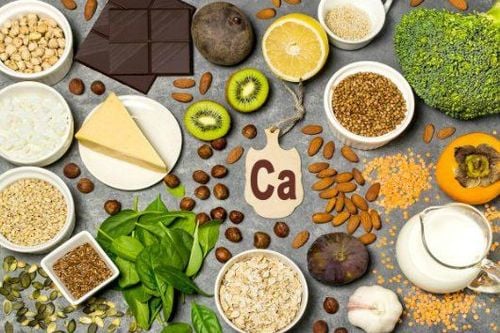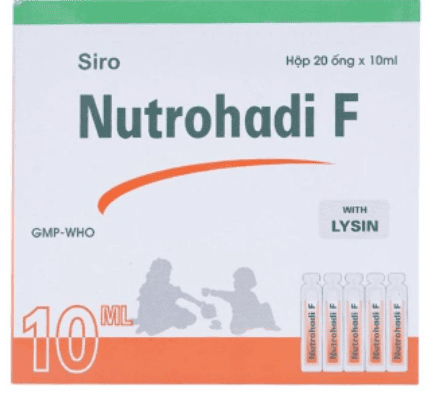This is an automatically translated article.
Lysine belongs to the group of essential amino acids of the body, it is contained in protein, so it also has the function of increasing the height of the baby. Therefore, parents should supplement lysine to increase height for children through foods such as meat, fish, eggs, milk, legumes (especially soybeans).
1. The process of growing children's height
Children will go through two remarkable stages of physical development: the first 1000 days of life (calculated from the time a child is conceived until the child is 24 months old) and puberty. These two stages, if children are provided with adequate nutrients, especially micronutrients along with a healthy living environment, can help children achieve optimal height.
The first 1000 days of a child's life is highlighted by the World Health Organization (WHO) as the "golden period" for both height and physical development. Children can grow up to 25cm in height in the first year of life and 10cm in height every year for the next 2 years. Therefore, children who are supplemented with nutrients at this stage can determine up to 60% of their adult height.
The period of infancy under 12 months of age has the fastest rate of physical and intellectual development compared to any other period. At that time, at this time, the baby will probably have twice the weight of the birth weight and the height will also increase one and a half times compared to the height at birth.
After this "golden period", the growth rate of children's height is not too fast (about 6.2cm in height per year) along with bone density also increases about 1% a year in both boys and girls .
As for puberty, the growth rate in height will reach a fixed rate of about 10 to 15cm in height per year and this increase will decrease gradually after that. The size and mass of a child's bones can increase by about $4 per year from the time a child is 8 years old through adolescence. The rapid accumulation of bone mass in the body is likely to be related to growth and height growth as well as to growth hormone activities.
And the role of diet becomes more and more reasonable in the development of the body during this period. The nutrients include protein, which contains the amino acid lysine, iron, calcium, vitamin D, zinc, iodine...
Therefore, capturing the child's height development stages along with other nutrients. influencing factors, especially proper nutrition can help children develop optimal body as well as height.

Bổ sung thực phẩm chứa dưỡng chất lysine tăng chiều cao cho bé
2. Can Lysine increase height for children?
Lysine belongs to the group of essential amino acids of the body, it is contained in protein, so it also has the function of increasing the height of the baby. However, this nutrient component is easily destroyed during processing and cooking. When children lack the amino acid lysine, it leads to the inability to synthesize protein in the body, thereby making children thin, atrophy, anorexia...So "how should you add lysine to your baby" is reasonable, helping children grow taller? Accordingly, parents should properly supplement lysine for children through foods such as: meat, fish, eggs, milk, legumes (especially soybeans). Using these foods in the right amount can help supplement lysine to increase the height of the baby, helping the child's development process more comprehensively.
3. A reasonable diet for the growth of children's height
Besides supplementing with lysine to increase height for children, the following nutritional compounds in foods will support the growth of children's height:
Protein: Plays a role in helping children grow strongly. The composition of this nutrient also includes digestive enzymes, hormones, antibodies to help children develop well. If a child does not get enough of this nutrient, it can lead to growth problems, possibly even weight loss, poor digestion, and more illness. That is what affects the height development of children. Calcium: Helps to develop strong bones and significantly increase height for children. Calcium requirements can vary by age, and usually the calcium requirement of children from 6 months to 18 years of age ranges from 400 to 700 mg/day. Foods with high calcium content include: milk, eggs, snails, shrimp, shrimp, braised fish with bones, tofu or vegetables. Vitamin A : Known for its special role in the development of children. Vitamin A has effects on the eyes and skin as well as the body's surface resistance to infection along with antioxidant and anti-cancer properties. When vitamin deficiency can cause bone growth retardation in children as well as affect the development of other organs in the body. Vitamin D: This is one of the nutrients that helps the body absorb calcium better. In addition, vitamin D also helps increase protein synthesis. The body can get some vitamin D from the daily diet including foods such as milk, butter, cheese, eggs, chicken liver, cod liver oil... However, the essential vitamin D content is mainly weakly located under the skin, when exposed to sunlight, it will directly help the skin synthesize vitamin D. Iron: Is a raw material of the hematopoietic process. Iron deficiency can lead to anemia causing slow growth. Foods rich in iron include liver, blood, eggs, meat, fish, beans, amaranth, iron-fortified milk.... Zinc: Necessary for many metabolic activities of the body, can help cell division cells and promote growth. Zinc requirements may need to provide about 0.5mg/kg of body weight and a maximum should be about 15mg per day. Iodine: Known as the raw material that makes up thyroid hormone, acts on many organs in the body to promote growth. Iodine requirements can vary by age and gender. Foods high in iodine include eggs, iodized salt, cheese, milk, fish, jelly, algae...

Ngoài canxi thì cần bổ sung lysine tăng chiều cao cho bé
4. A number of other factors help children grow in overall height
Need to pay attention to children's sleep Sleep plays an important role in height development. Because in the process of growing the length of the baby's bones will take place at night. Growth hormone GN is only secreted at night when the child is fast asleep around 10 to 12 o'clock at night. Therefore, children who sleep less and do not sleep well will not be taller due to the influence of growth hormone secretion.
Increase exercise and sports Many medical scientists have studied and said that exercise has great significance in height development. The process of exercise helps metabolism in the body to work more optimally, increasing bone mass in adulthood. At the same time, the exercise process will help blood circulation be better, the metabolism is enhanced and the growth hormone GH secretes more. Research results also determine that a period of intense exercise lasting from 1.5 to 2 hours a day can increase GH hormone by 3 times, which shows that muscles, circulation, ligaments, joints. is stimulated to make the whole body grow, including height.
Besides supplementing with lysine, calcium, iron, vitamin D..., parents need to pay attention to sleep as well as give children reasonable exercise to increase height properly. Babies also need to add necessary micronutrients such as: Zinc, selenium, chromium, vitamins B1 and B6, ginger, acerola fruit extract (vitamin C), ... to improve taste, eat well, reach afternoon Tall and correct weight and over the standard, good immune system, enhanced resistance to less sickness as well as less digestive problems.
To have more knowledge about taking care of children according to age, please visit the website (vinmec.com) regularly and make an appointment with the leading doctors, Pediatricians - Nutrition experts when you need advice.













